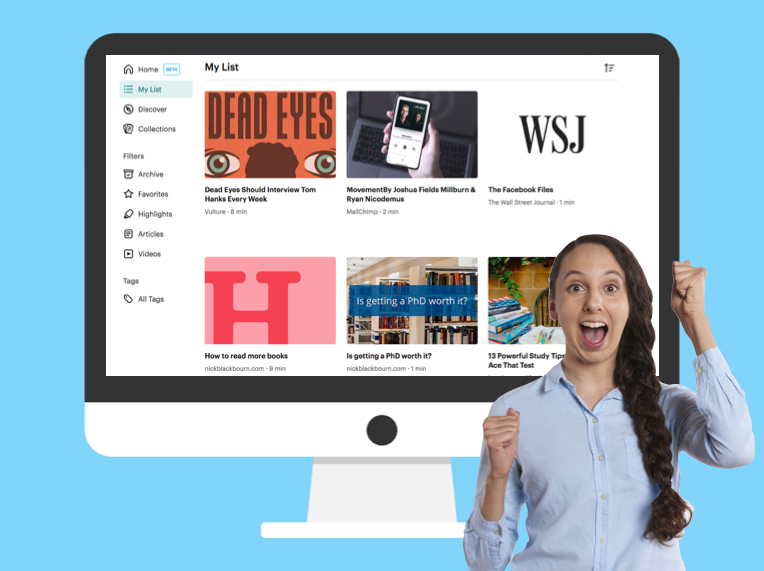
How do you do it without getting derailed by a tsunami of ads, click-bait, notifications and hyperlinks?
Your brain is up against many carefully crafted apps and video games that are designed to steal your attention.
This article is about how you can read online without ending up places you never intended to go.
I’m going to share strategies and guiding principles that help me to stay focused when I’m reading on a screen.
Let’s face it, we all need help with this. The temptation of fun apps and websites are only a few clicks away! But you only have so much mental energy. You need to know how to harness it and direct it towards the things that really matter.
I won’t deny it. I like being able to hold books and articles in my hands. This is why I buy a lot of books and get the Guardian weekly delivered to my door.
Being able to easily scribble down questions and draw pictures in the margins helps me to learn and understand the material.
If the information is really important and/or complex, I highly recommend printing it out. But for all other written works (e.g., blogs, emails, movies or book reviews), try implementing the following ideas and strategies.
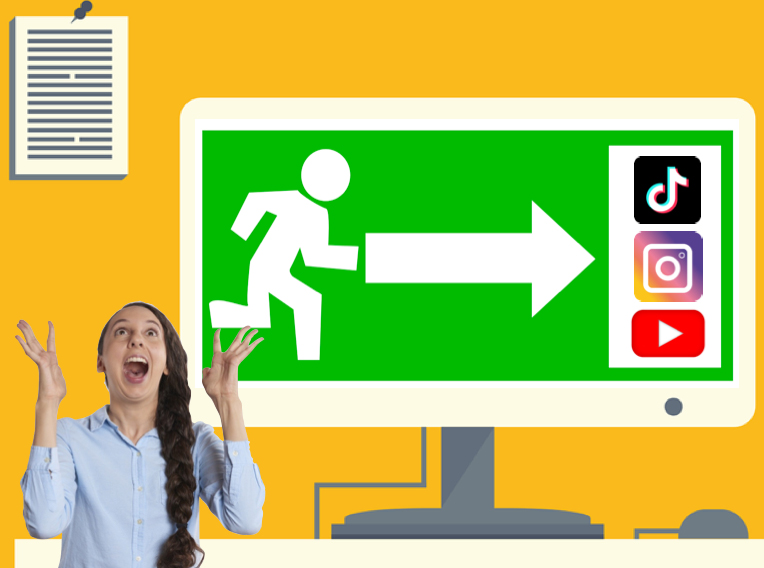
The human brain loves comfort. It loves the familiar.
But reading can be challenging and downright uncomfortable for the brain.
If you’re reading an article on a subject that is completely new to you and/or conflicts with your pre-existing beliefs, your brain is likely to have some kind of adverse reaction. It’s going to be like “What is this?! I don’t like this!”.
You’ll feel the urge to escape from this mental discomfort. Therein lies the problem with reading something online . . .
You have lots of easy escape routes (e.g., social media, YouTube, and Netflix). These escape routes give your brain instant relief and gratification. But they also take you further away from your goals and what you need to do (hello, life regrets!).
Don’t give your brain any room to run. Block the escape routes.
Before you sit down to read, set yourself up for a successful online reading experience. For example, here’s what I do:
• I put my phone on silent and place it in another room
• I activate an Internet blocker app called Freedom
• I clear away any clutter on my desk (I dump it in a box)
• I switch off any distracting music that’s playing (generally anything that contains lyrics)
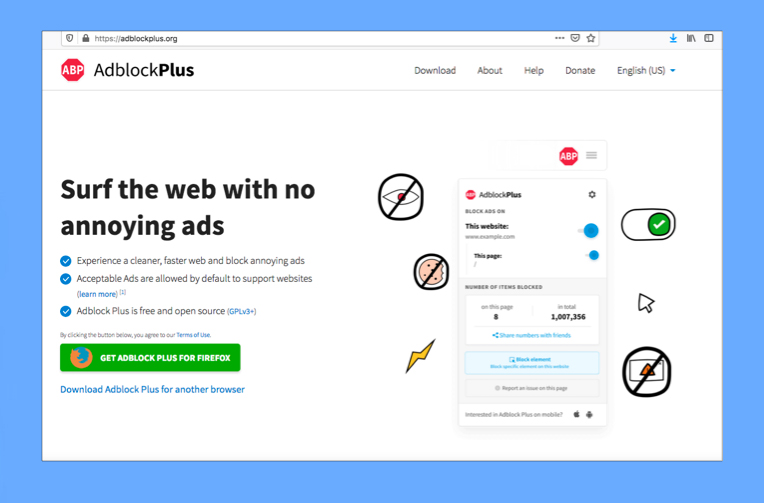
We all know the online world is not the real world. But there’s one irritating feature both worlds have in common: advertising.
The nasty thing about online ads is they are way more targeted (you can thank surveillance capitalism for that!).
Like all advertising, I see online ads as a form of mental pollution. They don’t add anything to your online reading experience, except noise, stress and visual clutter.
Online ads can easily derail your attempts to learn and grow. Plus, they can rapidly deplete your bank balance!
This is why I recommend installing an adblocker plugin to remove ads from webpages, social media and search engines.
Check out AdblockPlus. It’s free and highly effective.
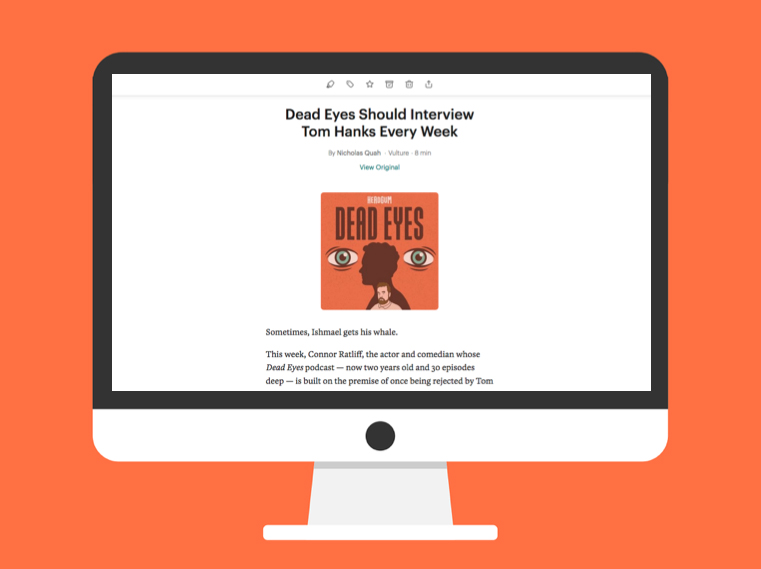
When reading an article, you want to be able to focus on just the content. Most of the time, you don’t need to see side bars, pop-up boxes and other people’s angry comments. This is online clutter that overloads your working memory and depletes your brainpower.
The good news is you can eliminate this clutter by using a free app called Pocket.
Pocket allows you to save articles in your web browser. You can then open the article up without all the other clutter that appeared on the original webpage.
When you open up an article in Pocket, you’ll see a lot of white space around the text. Your brain will say “Thanks!”. Using Pocket makes for a much nicer and easier reading experience.
Take out a notepad and pen and make notes as you read. Not only is it super handy to have something to refer back to but it will help you to understand the information more easily.
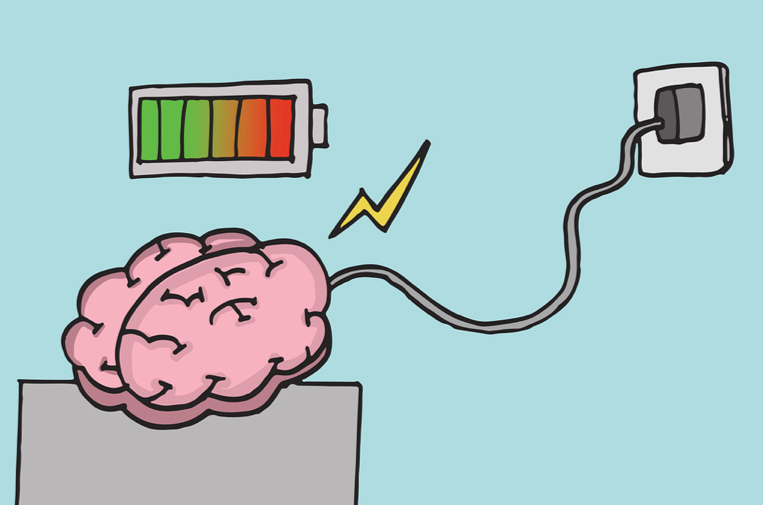
Reading may seem like a passive and ‘easy’ activity. But don’t be fooled. Reading requires serious brainpower.
What can help to supercharge your brain to get through all those articles and chapter readings?
I find two things help a lot:
1) Healthy snacks (ideally, within arms reach)
2) Power naps
Before I get stuck into a serious reading session (anything more than 30 minutes), I will sometimes make myself a little platter with veggie sticks, a dip and crackers.
It’s like the act of preparing the platter is helping me to mentally prepare for the task ahead. I’m also combining something tasty with something that can feel hard (i.e., reading). This seems to make the task of reading a complex article a little more pleasant for my brain.
As for the power naps, I typically use these to recharge my brain after reading academic papers.
It’s hard to absorb ideas and learn skills when you’re feeling exhausted. This is why I take power naps and prioritise sleep. It’s not a smart idea to try learning anything new late at night. You’re not going to remember very much.
Hit the sack and commit to waking up early and doing a little reading first thing in the morning.
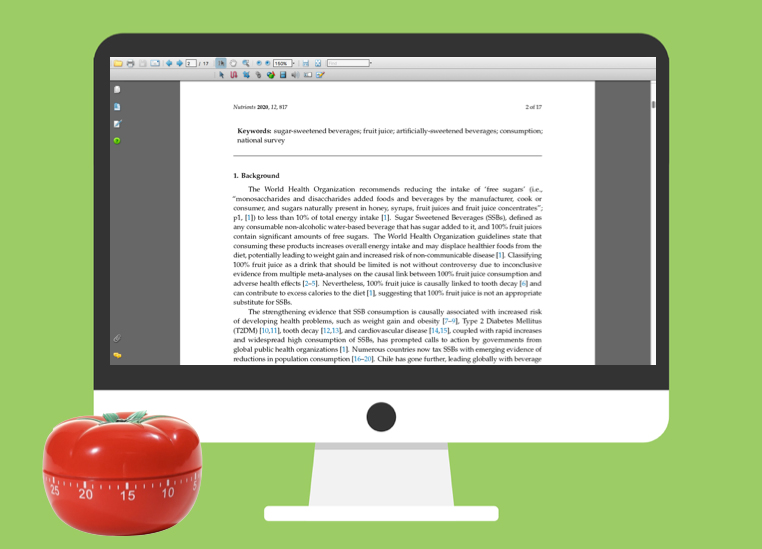
Decide on how long you’re going to read for. Then set a timer and go! Give the articles your full attention for this period of time. I find 25 minutes is a good amount of time for focused reading.
After sitting and reading for 25 minutes, I like to get up, stretch and look out a window to give my eyes a rest.
If you want to be able to remember what you read on a screen, you need to be able to focus your mind. You can’t be jumping around all over the Internet.
But this is not how most of us read online. We skim and scan pages, click and scroll. Like a poker machine, the Internet has trained us to be on the look out for anything that it going to light up the reward pathways of our brain.
You need to appreciate that reading a chapter isn’t going to instantly light up your brain in the same way that social media is designed to do. This is why it’s so important to set yourself up so you can read deeply and get to the end of an article. And if you made it this far, well done!
Share This:
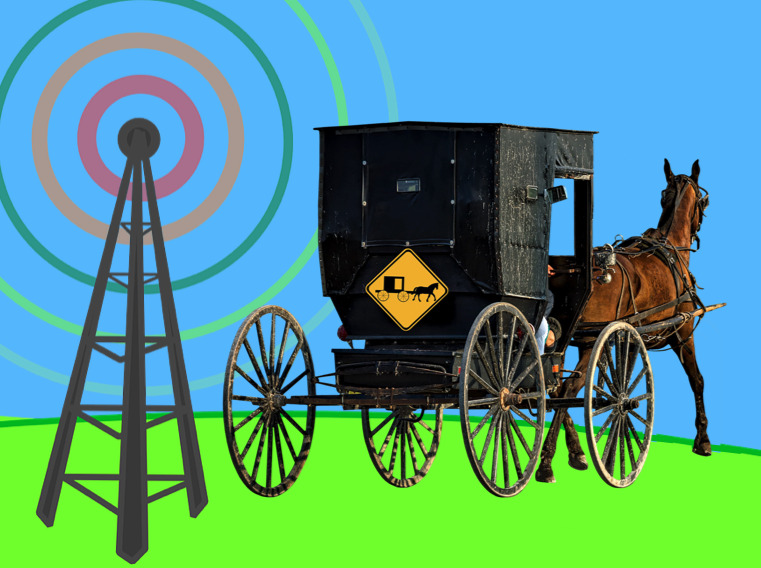
If I’m honest with myself, there was a time when technology was doing me more harm than good.
On Facebook, I frequently fell into the comparison trap (comparing myself to people who had posted delicious dinners, amazing holiday photos, etc).
On Twitter, I’d get baited by trolls (and I’d foolishly take the bait).
Throughout the day, I’d constantly check my phone and email, which left me feeling jittery and chaotic.
Big Tech was constantly hijacking my time, energy, and attention. Every time I retreated to my devices for a quick shot of dopamine, I moved further away from my goals. I didn’t like this, and I knew something needed to change.
Over the past three years, I’ve implemented many practices to regain control of my time, energy, and attention (including deleting all social media).
These practices have made a big difference in my life. But I’m well aware that not everyone feels the same way I do about Big Tech, nor are they in a position to be able to delete all their accounts.
Following a school presentation, I spoke with a small group of year 8 students. I shared with them that I didn’t use any social media, to which a year 8 girl quickly chimed in:
“My grandma has Facebook. What’s your excuse?”
Her words struck me like a bolt of lightning. I didn’t know what to say.
It highlighted how adopting these apps is the norm for a young person.
When everyone else has a smartphone and is using social media (including your parents and grandparents), why would you question using them?
I couldn’t forget the year 8 girl’s words. While I appreciated her candidness, it left me slightly disturbed.
At the same time, it increased my motivation to resist Big Tech. I started searching for role models: people actively resisting Big tech and this hyperconnected, fast-paced way of life.
One community kept popping up in my research: the Amish.
The Amish are often portrayed as being technologically impaired. A classic example is Weird Al Yankovic’s music video Amish Paradise (a parody of Coolio’s mega-hit Gangsta’s Paradise).

In this video, Weird Al sings:
I never wear buttons but I got a cool hat
And my homies agree I really look good in black, fool
If you come to visit, you’ll be bored to tears
We haven’t even paid the phone bill in 300 years
But we ain’t really quaint, so please don’t point and stare
We’re just technologically impairedThere’s no phone, no lights, no motorcar
Not a single luxury
Like Robinson Crusoe
It’s as primitive as can be
While the Amish still mainly travel by horse and buggy and shun many modern technologies, such as televisions, radios, and cars, they are not ‘technologically impaired’ as Weird Al makes out.
When it comes to cultivating healthy digital habits, there is a lot we can learn from the Amish.
The Amish have a set of strategies that guide the adoption and use of different technologies. These strategies have allowed them to avoid being pawns for the goals of Big Tech companies, which make massive profits by seizing people’s attention.
I recently read a fascinating book called Virtually Amish, written by Dr Lindsay Ems. For her PhD research, Dr Ems spoke to Amish people about their relationship to modern technology (e.g., smartphones).
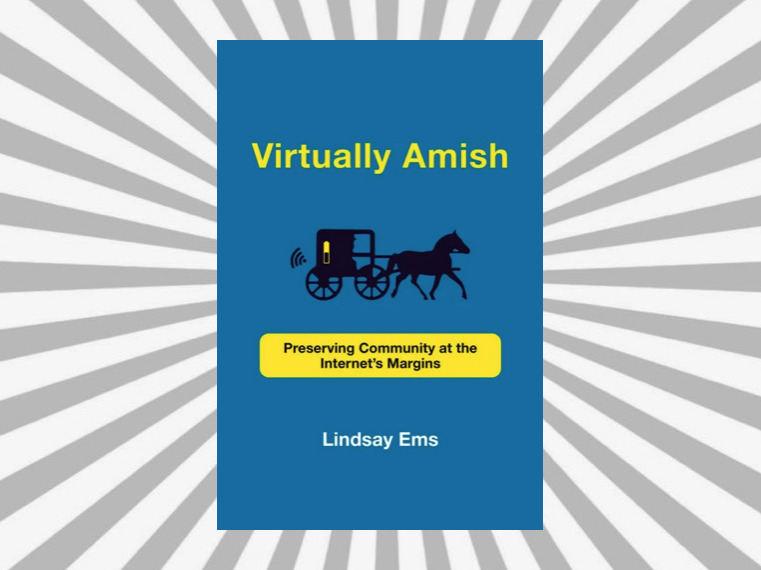
She argues that the Amish take control of their tech tools and thrive. Through adopting similar practices, we can thrive, too.
Below, I share how you can thrive by emulating Amish practices and beliefs around technology:
The Amish are not technophobes. They are ‘technoloselectives’.
They carefully consider the tech tools they’ll adopt and their functionality, tweaking them to help them achieve their goals.
The Amish don’t mindlessly purchase the latest gadgets and gizmos. Instead, they think about their values and goals and how the technology could cause unintended harm to themselves and the wider Amish community.
What are your goals?
Do your tech tools help you achieve them, or do they distract you from them?
The Amish are guided by their values (i.e., the things that are most important to them). Their values underpin everything they do.
So, what exactly do Amish people value?
• Community
• Connections with others
• Living a simple and slow-paced life
• Living a spiritually rich life
• Being self-sufficient
The Amish use these values to guide their adoption of technology.
An example of this can be seen with the arrival of the home telephone (not smartphone). Dr Ems shares how the Amish decided to ban the telephone from being inside the family home.

This ban came about after careful consideration and reflection on their values. The Amish value connections with family, friends, and the community. They don’t want to be the kind of person who interrupts a conversation by answering a telephone call. For this reason, telephones are located outside Amish family homes or nearby.
What are the things that are most important to you?
How does technology impact on those things?
Does it enrich those things or diminish them?
The Amish understand that technology can cause harm. Subsequently, they intentionally delay adopting new technology until they see its impact on others.
Does it destroy family life? Does it wreak havoc on their ability to pay attention and distract them from their spiritual life?
If so, the technology threatens their culture and religion, and for these reasons, it should be avoided.
Before adopting a piece of technology, the Amish need to be clear about two things:
1) The functionality of the technology (what it can do)
2) The potential social impacts of the technology
Once they deeply understand these things, it is then decided whether the technology is adopted or not.
It may come as no surprise that Amish people view the smartphone as an incredibly dangerous innovation. Many Amish communities have bans on this device.
How do you feel after spending time on social media?
Have you seen things posted on social media that weren’t true or were exaggerated?

When an Amish person wants to use a new technology, that technology will go through a formal decision-making process.
The community (in particular, the leaders) will consider the future with this technology. They’ll try to imagine how the technology could change their way of life.
Questions the Amish reflect on include:
• What are the advantages and disadvantages of the technology?
• What might come with it that we might not anticipate?
• Could someone get addicted to it?
• Is it a need or a want?
• Can the technology be restrained?
In her book Virtually Amish, Dr Ems provides the example of an Amish business owner asking the community leaders if he could have permission to use a label maker for his business.
After careful consideration, the leaders ruled label makers could be allowed for the following reasons:
• They are not addictive
• They can’t be used for recreational purposes (e.g., playing games or entertainment)
Think of a new technology (device or app) you want to adopt. Could it become addictive?
Many Amish people believe the issue is not whether you use a smartphone or social media but how you use it. It’s important that the Amish remain in control of their use of tech and place limits on it.
It’s also important that the technology is not visible (i.e., you don’t pull your smartphone out in Church or during a conversation). Being discrete in the way one uses technology shows respect for Amish values.
How do you use the tech in your life?
Are you in control of your use?
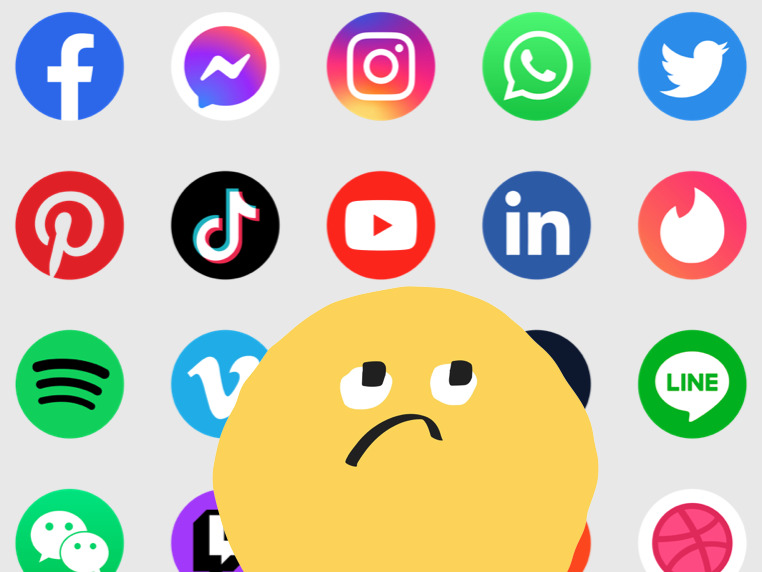
Amish people think about not just how they use the technology but what kind of person they become when they use it.
This point resonated with me deeply. I can’t say I’ve always liked who I become when I use certain technology.
A few years ago, I babysat my friends’ children when my friends went out for a kid-free meal. I look back and cringe when I think about how the experience unfolded.
Before going to my friend’s place to start babysitting, I got into a heated text discussion with some people in a group chat. Things were said that upset me.
For most of the night, I was on my phone, texting back and forth, not present with these young children. At one point, the little boy tugged on my arm to get my attention. “Aunty Jane, come play!” he said.
What can I say? I felt terrible. This certainly was not my finest moment. I had become the kind of caregiver I am usually quick to judge: distracted and disengaged.
I vowed to avoid trying to resolve issues by text and leave my phone at home next time to be fully present with the kids.
When you use social media, what sort of person do you become?
The Amish take modern tech tools and modify them to help them achieve their goals.
The plain mobile phone is an example of this. Amish people have created a mobile phone that can only make calls. It doesn’t have a camera, games, access to the Internet, or the ability to send text messages.
Similarly, the plain computer allows Amish to make spreadsheets, do word processing, and construct simple drawings. This allows them to complete tasks without being distracted by other things.
In other words, the Amish create what David Kadavy (author of Mind Management, Not Time Management) would refer to as sticky tools. A sticky tool allows you to stay focused on a task without getting distracted.
What sticky tools could you consider adopting (e.g., a basic flip phone and Internet blocker app)?

The Amish take pride in growing their own food, raising barns, baking their own bread, tinkering with robotics, inventing, and making their own clothes. They are not big consumers, but they embrace a simple lifestyle and encourage human creativity.
In the modern non-Amish world, many of us are doing the polar opposite of this. We have fallen into the trap of consuming content mindlessly online (e.g., watching people bake bread instead of baking our own bread).
Don’t get me wrong—the Internet is an excellent learning tool to help us build our skills. I have turned to YouTube for many instructional videos on how to make and fix things. But doing this requires discipline because it is all too easy to get derailed by other distracting videos.
The bottom line is this: the more time we spend online, the more ads we are likely exposed to and the more our consumptive desires are stirred up. Is it any wonder so many people feel so dissatisfied with their lives?
Instead of mindlessly consuming, what can you create today?
The Amish embrace tech with inbuilt friction. In fact, inconvenience is considered a virtue.
Dr Ems shares that many Amish technologies intentionally contain ‘speed bumps’ and ‘friction’. The reason for this friction is to prevent Amish people from wasting time on the device.
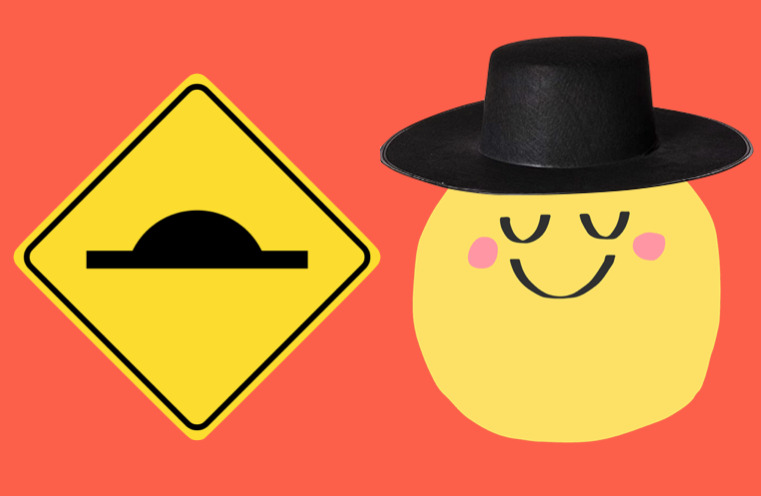
I’ve found this is one of the positives associated with using a ‘basic phone’.
Last year, I experimented with using a basic flip phone with limited functionality (I could only make calls and send texts). Texting on this phone was so painfully slow that it made me want to avoid getting into long text discussions with people. It was easier to pick up the phone and call people.
Using a smartphone to text your friends may be easier than making a phone call, but as the Amish strongly believe, easier is not always better.
How can you build friction into your tech use?
Can you embrace analog alternatives to decrease your screen time?
How much control do you have over your time, energy, and attention? As Chris Bailey writes in his book How to Calm Your Mind, “On the Internet, our intentions very quickly slip from our grasp.”
If you want to thrive online and offline, consider adopting some of the tech habits of the Amish. By limiting their tech use, the Amish have been able to remain mentally free and protect their way of life.
If more of us adopted Amish tech practices (e.g., being intentional with our tech use and placing limits on it), we’d most likely feel calmer and less anxious. We’d also spend more time engaged in activities that bring us joy and are aligned with what we value.
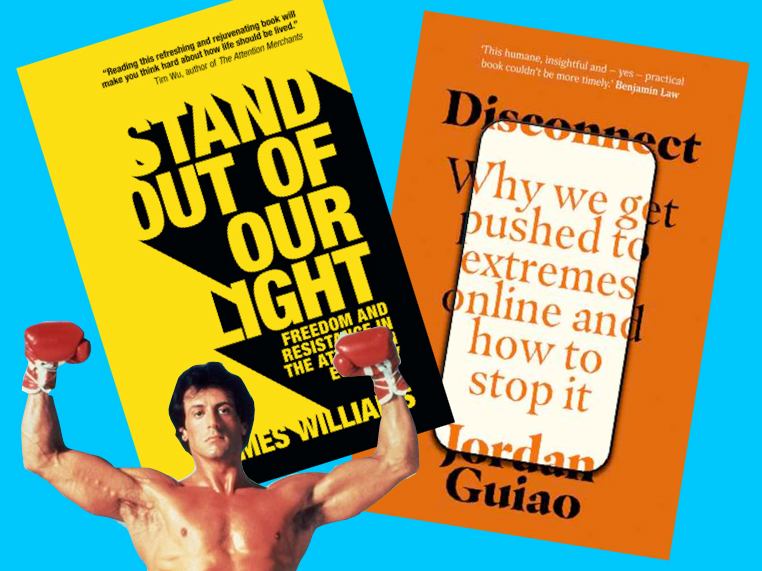
I read some absolute gems.
I’m a firm believer that a good book can change your life. This is why I make time to read every day.
As Australian actor Francis Greenslade advises in his book How I Learnt to Act:
“Read novels and plays and poetry. Read everything. I can’t stress this enough. Reading gives you so, so much. The more you read, the more new ideas you absorb, and the more new situations you experience . . .
The more you read, the greater your powers of concentration. What’s even more beautiful about reading is that it puts you into the head of someone else. It forces you to abandon your view of the world and take on anothers. In other words reading gives you empathy . . .
And it’s never too late to start. Read a book and you’ll become a better actor. But Snapchat and glossy magazines and online games – they don’t give you anything.”
1. Dopamine Nation: Finding Balance in the Age of Indulgence by Dr Anna Lembke
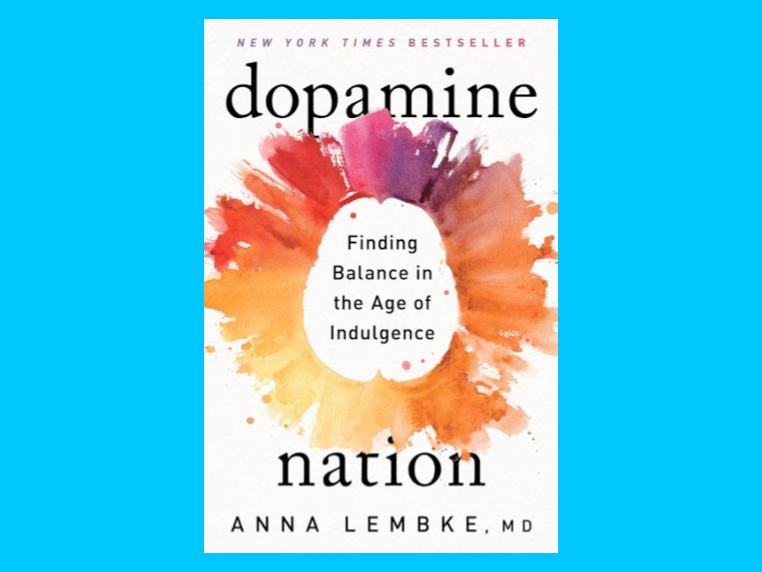
In Dopamine Nation Psychiatrist Dr Anna Lembke argues that in the modern world most of us are running from pain. Whether we’re numbing ourselves with drugs, bingeing on Netflix, gambling, or compulsively shopping online, we’re “distracting ourselves from ourselves”. Lembke states:
“The reason we’re all so miserable may be because we’re working so hard to avoid being miserable.”
Dr Lembke shows readers a path to living a more authentic and fulfilling life.
Spoiler alert: the good life isn’t about having whatever you want, whenever you want. It’s about embracing the discomfort of the present moment and giving our dopamine receptors a chance to regenerate.
2. Stand Out of Our Light: Freedom and Resistance in the Attention Economy by James Williams

Ex-Google strategist turned philosopher James Williams has written a brilliant book on the importance of reclaiming your attention and fighting back against the persuasive techniques used by the attention economy (i.e., big tech companies).
This book helped me to clearly see that the goals of big tech companies are not aligned with my personal goals. These companies do not have our best interests at heart. Williams argues if you want to be truly free and reclaim your capacity to think, you need to extract yourself from these machines of industrialised persuasion.
3. Stolen Focus: Why You Can’t Pay Attention – and How to Think Deeply Again by Johann Hari
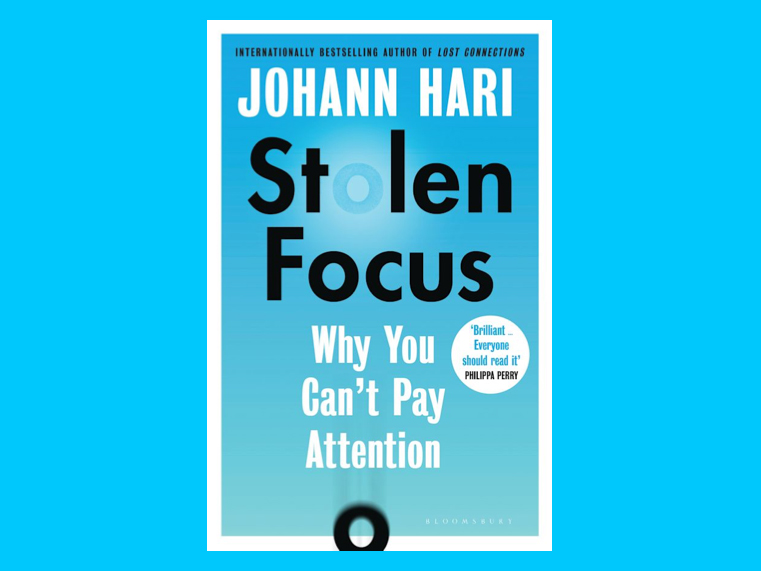
Johann Hari deserves an honorary doctorate for this literary masterpiece. In Stolen Focus, Hari travels the world interviewing experts to understand why our ability to focus has degraded and what can be done about it.
This is a complex, multipronged problem. Hari argues that we need systemic change to solve this crisis of attention (individual action won’t cut it). And this crisis of attention desperately needs our attention. If we stand any chance of solving the major issues we currently face (e.g., climate change), we need to build a social movement to reclaim our attention.
4. Mindful Self-Discipline: Living with Purpose and Achieving Your Goals in a World of Distractions by Giovanni Dienstmann

Being self-disciplined is the key to achieving your goals. But with just one click, you can get sucked into a world of instant gratification. How can you cultivate greater self-discipline in the age of distraction?
Giovanni Dienstmann has thought deeply about this question. In Mindful Self-Discipline he explores the many aspects to cultivating self-discipline. Topics include avoiding the trap of easy dopamine, creating a focus-friendly environment, letting go of unfair comparisons, and cultivating time awareness. This is the best self-help book I have read in a long time. I highly recommend it.
5. Time Wise: Powerful Habits, More Time, Greater Joy by Dr Amantha Imber

I’m a little sceptical of most productivity and time management books, but I enjoyed reading this book by Dr Amantha Imber. It’s a collection of strategies gathered from her popular podcast ‘How I work’.
I particularly liked the strategies presented to deal with addictive technology.
Some of my favourite strategies included:
• Putting rubber bands horizontally across your phone screen: this acts as a physical barrier to checking your phone.
• Solitude deprivation: Having time to be alone with your thoughts (no inputs from technology). This involves planning when you want to receive inputs from your phone and other devices.
• Creating stopping cues: Social media companies use strategies to keep you scrolling and clicking. To combat features like the infinite scroll, you can create your own stopping cues (e.g., having a set time to log off).
6. Move the Body, Heal the Mind: Overcome Anxiety, Depression, and Dementia and Improve Focus, Creativity, and Sleep by Dr Jennifer Heisz by Dr Jennifer Heisz
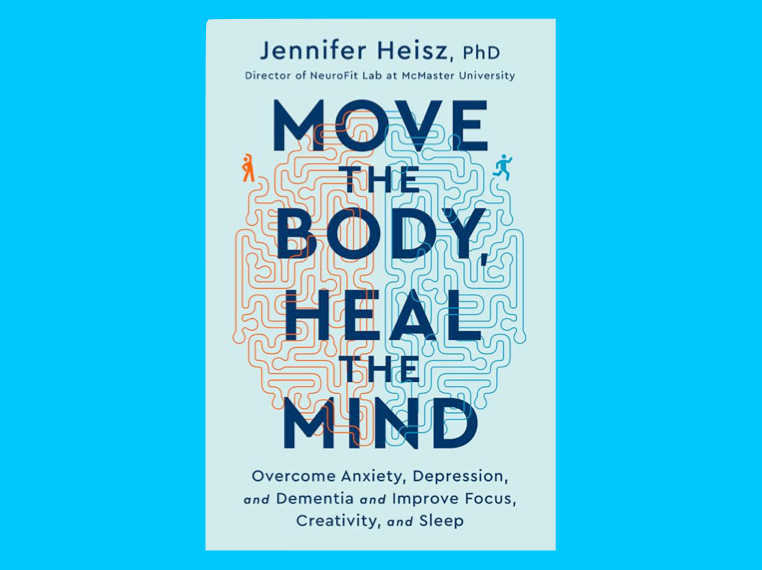
Over the years I’ve read a lot of books on the benefits of exercise but this book tops the list!
Neuroscientist Dr Jennifer Hiesz does a superb job presenting the science behind what exercise does for brain health, mental health, and preventing dementia.
Reading this book was like having a light bulb go off in my head. It gave me a deeper appreciation of exercise and how it has helped me to reduce anxiety, keep depression at bay, enhance my focus, and get through challenging times.
7. Disconnect: Why We Get Pushed to Extremes Online and How to Stop it by Jordan Guiao
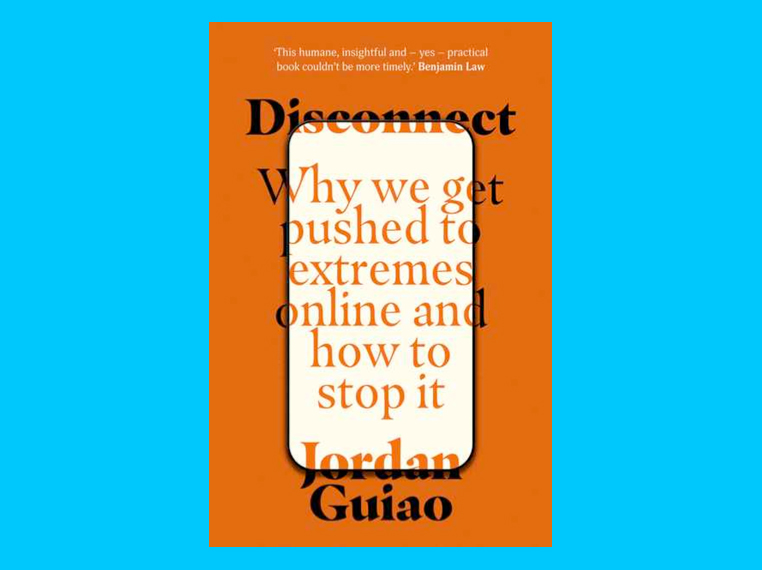
This year I have had more conversations with people who believe in conspiracy theories than in the previous 10 years of my life. It’s alarming. How did we get here?
If you know someone who has fallen down conspiracy theory rabbit holes, this book will help you understand how this happens and what you can do to help your loved ones. Guiao also explores a number of other Internet related issues including social media narcissists, naïve futurists, hateful trolls, and dating app pests.
So, there you have it! Those are my favourite nonfiction books for 2022. They were packed full of life changing strategies and wisdom. I’m grateful to these authors for sharing their ideas with the world.
What books did you enjoy reading this year?
I’d love to hear your recommendations.

This is despite the fact plenty of research shows we’d be less stressed, have more energy, and feel more relaxed if we spent more time out in nature.
Nature is a powerful antidote to the stresses and pressures of modern life.
With this in mind, I’ve been experimenting with creative ways to get my daily dose of nature. One strategy I’ve been testing out is working outside.
I recently listened to a podcast interview with Kim Stanley Robinson (author of The Ministry for the Future). Kim has been writing books outdoors for the last 15 years. In fact, he believes this is what saved his writing career.

On the podcast Wild with Sarah Wilson, he mentioned how this interesting habit came about. He said:
“I was feeling tired of writing . . . burnt out. And then I moved outdoors to a café table that’s in a courtyard that’s fenced in by the side of the house. There’s a Japanese maple shading it but it wasn’t quite enough shade for the laptop screen. So I slung a tarp from the fence and tree branches.”
He later added:
“I realised I wasn’t sick of writing. I was sick of being indoors all day.”
For Kim, writing outdoors has been a joy and an exhilarating experience. “The little birds are my office mates”, he said.
After listening to this interview, I thought “What have I been doing all this time?”
I knew I needed to head outdoors and set up a second workspace.
I didn’t waste any time. I went on Gumtree and found a cute retro vintage table with drawers. It fit perfectly in the space I had available on my back verandah.
Mosquitos are a real problem in my neighbourhood. Like a phone pinging constantly, they are a source of distraction and irritation.
To combat this problem, I purchased a secondhand mosquito net for $5 to hang over my workspace. Upon inspection, the net had one little hole but this was easily fixed with a needle and some thread. With a couple of clothes pegs, I am able to close the opening of the net so mosquitos can’t get in.
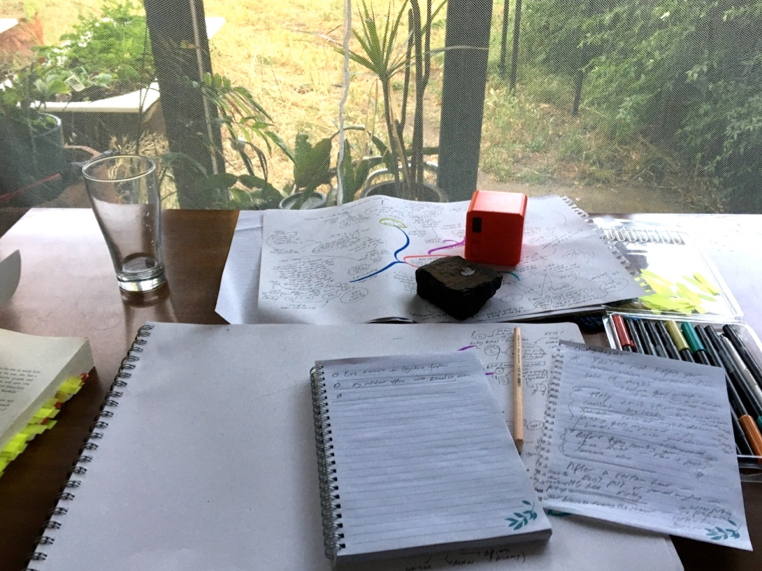
I can’t tell you how satisfying it is every time I am working away and I see a mosquito buzzing on the outside of the net. I think “Victory!”.
With my outdoor workspace, I need to be able to easily access the right tools and stationery once I enter the netted space. I don’t want to have to get up and unpeg the mosquito net every few minutes and risk a pesky mosquito entering my space.
• Pads of paper
• Pencils and gel pens
• Coloured pens
• Post-it notes
• Electronic timers (to track my work sessions and breaks)
• Water bottle and glass
• A couple of solid rocks (to act as paper weights so my papers don’t fly away when it’s windy)
• Ergonomic laptop stand (to prevent neck strain), a keyboard, and mouse
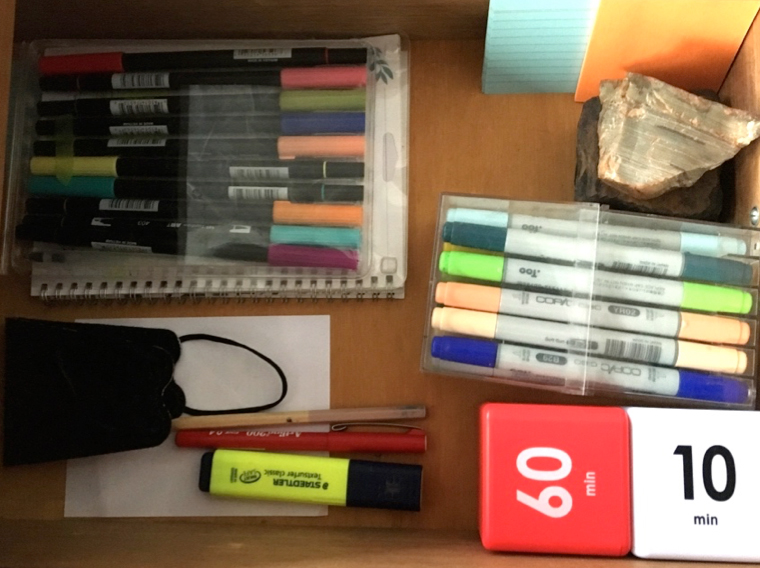
Having these items within arms reach means I can get into a flow state quickly and stay in flow.
When I’m working outdoors, I have a simple rule: my mobile phone is off limits (I leave it inside the house). It’s amazing how when my work gets difficult, instead of checking my phone to get a quick shot of dopamine, I’ll notice a little bird or a wasp flying nearby. This gives me a mini mental break without getting completely derailed and losing sight of what I need to be doing.
This is probably the biggest downside associated with working outdoors. You have no control over the elements.
If you live in a warm climate like I do, you may want to set up a fan. Kim Stanley Robinson who lives in California installed one of those misting devices that pubs and cafes use in their outdoor areas to keep customers cool. He says this keeps him cool during Summer.
I live in Western Australia where in Summer it’s easy to feel like you’re being slow roasted outside. When it gets too hot, it’s hard to think and near impossible to learn.
Similarly, when it’s too cold, I can’t focus and learn for the life of me!

But in Winter, you can layer up. You can put on a warm jumper, beanie, some uggboots, and/or use a blanket. Kim Stanley Robinson says in the colder months he puts on his mountaineering gear to write outdoors. He sometimes even uses an electric heating pad for his feet.
Bottom line is this: do what you need to do to be comfortable in your outdoor workspace.
I understand Kim and I are both in privileged positions. Not everyone has a backyard, verandah, and/or the space to set up an office outside.
If you don’t have a backyard, here’s what I would recommend: create a mobile office. This is a backpack that contains everything you need to do your work.
Then, take your backpack to a local park (ideally one that has plenty of shade) and set yourself up at a picnic table.

Alternatively, simply having a picture or painting of a natural environment in your study space and looking at it from time to time can be beneficial. This study found staring at a picture of a flowering meadow green roof for just 40 seconds was associated with better sustained attention.
Indoor plants are a fabulous investment, too. Having indoor plants in your space has been found to boost creativity (you can check out the research here).
In a world where we are becoming increasingly disconnected from the natural environment, working outdoors can be a great way to get a good dose of nature.
Since setting up my outdoor office space, I’ve noticed so many wonderful little creatures in my garden that I normally wouldn’t see (mainly birds and bandicoots). I also feel calmer and more energised at the end of the day. I can focus better, too.
I strongly encourage you to invite a little more nature into your life, whether it be by setting up a desk outside or adding some indoors plant to your study space.
Dr Jane Genovese delivers interactive sessions on learning to learn, combating procrastination, exam preparation, how to focus in the age of distraction, habit formation and much, much more!
Get FREE study and life strategies by signing up to our newsletter:
© 2024 Learning Fundamentals